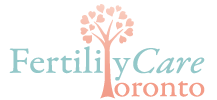
St. Marguerite Bourgeoys FertilityCare Toronto provides women with a method to investigate and treat gynecological health issues. These conditions could include endometriosis, uterine fibroids, unusual bleeding, PMS, polycystic ovarian syndrome and dysmenorrhea to name a few.
By charting a women’s cycle, a targeted hormonal profile is created to determine a restorative treatment of the underlying disorder(s).
The one-year FertilityCare Program includes:
- A private introductory session on the Creighton Model FertilityCare System
- Charting starter kit including charts, stamps, and user manual
- 8 private follow-up sessions with a FertilityCare Practitioner to ensure accurate observations and charting
- Referral to a NaProTECHNOLOGY Medical Consultant, if required
Additional sessions with your Pracitioner beyond the first year are provided as needed.
Sign up for a FREE Discover FertilityCare Session or book an Introductory Session and get started right away.
See our Schedule of upcoming Sessions, email info@fertilitycare.ca or call 416-465-2868.

What is Polycystic Ovarian Syndrome (PCOS)?
Polycystic Ovarian Syndrome is a hormonal imbalance that causes the ovaries to malfunction and is the most common hormonal disorder in women. The classic signs are a long or irregular cycle, but there are many variations of this syndrome.
What is endometriosis?
This is a condition where cells from within the uterus move and implant themselves in other locations. When the cells take up their new location they continue to be hormonally responsive. Some women experience no symptoms; others suffer severe menstrual cramps and painful intercourse. This condition is often associated with infertility.
What are pelvic adhesions?
Pelvic adhesions are a type of scar tissue, which can form as a result of a number of insults to the pelvic organs. Common causes of pelvic adhesions include endometriosis and pelvic infection. In addition to these, any surgery on the pelvic organs has an associated risk of adhesion formation. These adhesions can be the cause of severe pelvic pain, although most of the time women with this problem have no symptoms. It can also be related to infertility by obstructing the fallopian tubes or impairing their function.
What are uterine fibroids?
Uterine fibroids develop from the smooth muscular tissue of the uterus. These benign growths often appear during child-bearing years and can interfere with normal menstrual function creating a situation of excessively heavy menstrual periods (menorrhagia). The fibroids can develop in positions that can affect the normal functioning of the uterus and fallopian tubes.
What is dysmenorrhea?
Severe menstrual cramps. The primary cause is an excess of one hormone, which causes uterine contractions, which causes the pain of cramps.
What is Premenstral Syndrome (PMS)?
Premenstrual syndrome affects 40% of women approximately 7-10 days before their period. Symptoms include: irritability, breast tenderness, bloating, weight gain, cravings for carbohydrates, crying easily, depression, headaches and insomnia. Often the cause of PMS is a hormonal imbalance that St. Marguerite Bourgeoys FertilityCare Toronto can easily identify. A referral would be provided to a FertilityCare Medical Consultant for treatment.
What is postpartum depression?
Up to 40% of women experience this condition, usually within the early weeks following delivery. Progesterone injections are 95% effective in halting this condition and far exceed the effectiveness of either psychotherapy or antidepressants.
